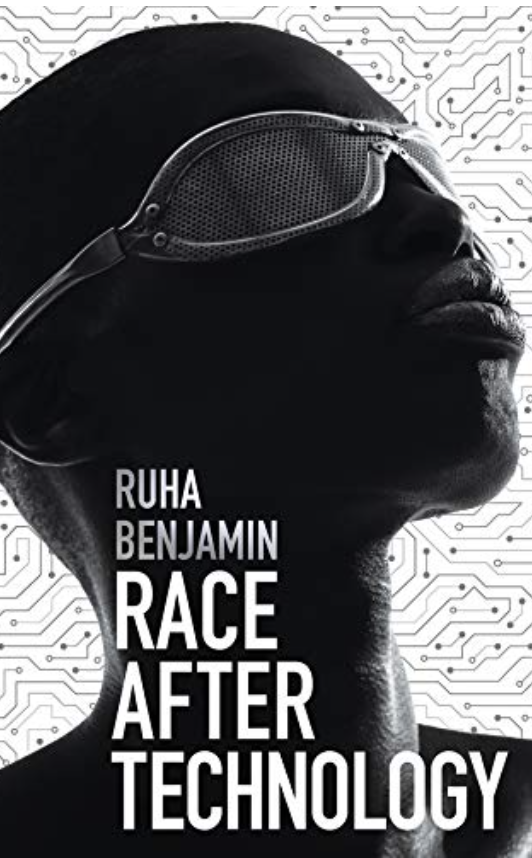Introduction
In “Race After Technology,” Ruha Benjamin offers an insightful examination of the intersection between race and technology. As a professor of sociology and African American studies at Princeton University, Benjamin brings a wealth of knowledge and expertise to the table. The book emphasizes the pressing need to address racial issues within technological advancements, which are often overlooked in contemporary discussions. This review will explore the pivotal themes central to Benjamin’s arguments, providing readers with a comprehensive understanding of the book’s significance.
1: Background and Context
The Author’s Perspective
Ruha Benjamin’s extensive background in sociology and African American studies positions her as a leading voice in the discourse on race and technology. Her previous works, such as “People’s Science: Bodies and Rights on the Stem Cell Frontier,” have laid the groundwork for her critical analysis of societal structures source.
Setting the Stage: Race and Technology
Benjamin contextualizes the historical interplay between race and technology, raising essential questions about the role technology plays in perpetuating inequality. This framework prompts readers to reconsider the assumptions they may hold about technology being neutral or inherently beneficial.
2: Key Themes Explored in the Book
Racial Bias in Technology
One of the most alarming revelations in Benjamin’s work is the prevalence of racial bias in algorithms and AI systems. She illustrates this through case studies, such as the discriminatory outcomes in facial recognition technology, which demonstrate how these systems can exacerbate existing racial inequalities. The author delves into the implications of these biases, urging readers to question the fairness of such technologies.
Surveillance and Control
Benjamin discusses how technology can serve as a tool for surveillance, particularly impacting marginalized communities. The use of surveillance technologies raises profound concerns regarding privacy and autonomy, as these communities often become the primary targets of data collection and monitoring.
Innovation and Exclusion
Technological advancements can perpetuate economic and social disparities, a concept Benjamin refers to as “technological redlining.” This term highlights how innovations, rather than being universally accessible, often reinforce existing inequalities. The implications of this can be seen in the digital divide, where certain groups lack access to essential technology and internet services.
Ethical Considerations in Technology
The book calls for a critical reevaluation of ethical considerations in technological development. Benjamin urges tech developers and policymakers to take intentional actions to address racial inequities, advocating for a more inclusive approach in the design and implementation processes. This includes the need for diverse perspectives to be represented, as emphasized by discussions surrounding ethical AI.
Societal Implications of Technology
Benjamin probes how technology can shape societal norms and dynamics, particularly regarding race. She argues that understanding these implications is crucial for communities as they navigate their relationship with technology.
3: Critical Analysis
Strengths of the Book
“Race After Technology” stands out due to its insightful analysis and thorough research, grounded in academic frameworks. Benjamin adeptly combines theoretical perspectives with real-world examples, making her arguments both compelling and relatable.
Critiques and Limitations
However, some critiques can be made regarding the depth of certain arguments. While Benjamin covers a broad range of topics, there are instances where the discussion could benefit from more diverse perspectives or examples from outside the United States, which may limit the book’s applicability in a global context.
4: Implications of the Discussion
Impact on Policy and Practice
Benjamin’s insights have the potential to significantly influence policymakers and tech developers. By emphasizing the importance of ethical considerations in technology, she encourages stakeholders to actively engage with the implications of their work. This discussion is particularly relevant in light of current debates surrounding tech regulation and accountability.
Broader Societal Implications
The text serves as a catalyst for a broader conversation about technology’s role in shaping racial dynamics. Benjamin’s work urges readers to consider their responsibilities in advocating for equitable tech development and rethinking the societal norms surrounding technology.
5: Conclusion
Summarizing the Book’s Contributions
In conclusion, Ruha Benjamin’s “Race After Technology” offers a critical examination of the intersections between race and technology, highlighting the ongoing challenges of bias, surveillance, and exclusion. Her arguments are not only timely but essential for understanding the contemporary landscape of technology.
Personal Reflection
As a reviewer, I believe that Benjamin’s work is incredibly relevant today, especially as society grapples with increasing dependence on technology. I encourage readers to engage with her book and reflect on its implications, as we all play a part in shaping a more equitable technological future.
Call to Action
I invite readers to share their thoughts on the intricate relationship between race and technology. Furthermore, I recommend exploring additional resources, such as Algorithms of Oppression by Safiya Umoja Noble and “Weapons of Math Destruction” by Cathy O’Neil, for a deeper understanding of these pressing issues.
References
-
- Benjamin, Ruha. Race After Technology. Polity Press, 2019.
- ACLU. “The Flaws in Face Recognition Technology.”ACLU.
- Brennan Center for Justice. “Surveillance Technology and Race.”Brennan Center.
- Pew Research Center. “Digital Divide.”Pew Research.
- Harvard Business Review. “What Are the Ethical Implications of AI?”HBR.
- Wired. “What’s Next for Tech Regulation?”Wired.
- Noble, Safiya Umoja. Algorithms of Oppression. NYU Press, 2018.
- O’Neil, Cathy. Weapons of Math Destruction. Crown Publishing Group, 2016.

